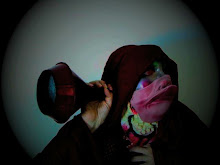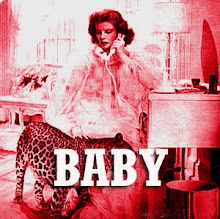I'm speekken to You! yes you..
I contacted Spahr and Aston last year when I read their article and the associated responses on the 'Numbers debate' of Women Writers widely circulated on the web...(see links below).
The articles and following debate drew attention to how many women are missing/silent/silenced from current issues in innovative or experimental literature particularly around the publishing and distribution let alone acknowledgement of their work.
Moved by this infuriating situation... I offered to take on the collecting or co-ordinating of info from as many people who were interested in writing out their experience from this neck of the woods, whats that? Australia, the pacific...all thats down under...But it doesn't matter where you are from, if your reading this then your ok to WRITE.
So tell it like it is for you and your experience of being a woman writer or a feminist writer, a poet, experimental, innovative avant-garde language based text, multimedia person...you can forward it onto me and I'll publish responses back to you all and then forward it onto Spahr and Aston.
Here are the articles...
Juliana Spahr and Stephanie Young, "Foulipo"
Jennifer Ashton, "Our Bodies, Our Poems"
Chicago Review documents:
Juliana Spahr and Stephanie Young, "Numbers Trouble"
Jennifer Ashton, "the Numbers Trouble with 'Numbers Trouble'"
Joshua Kotin and Robert P. Baird, "Poetry Magazines & Women Poets"
****
The following is their call asking for info and feedback
Dear Poet or Friend of Poets,
In the last year, we have co-written a paper that deals with representation of women in the US experimental poetry scene. One of the things our paper does is end up being a catalogue of what’s missing; a catalogue of some of the limits of a mostly white, mainstream US feminism in experimental poetry scenes. We see a myopic lack of attention to women’s issues outside of the US and a lack of collective action. We need more feminisms.
We end this paper asking people to write to us with suggestions about how to overcome this. Our intention is to try and compile a bunch of these suggestions for publication in order to start a conversation.
Would you be interested in being a part of this conversation?
Our plan right now is to start this conversation outside of the US.
There are several ways you could help us.
Put together statements about feminisms in your community.
Ask friends.
What it is like to be a woman poet in _____. What should U.S. poets know about the living and working conditions of ____ women poets? What can be done? Is there anything to be done together? But you could put together and write whatever you thought was most appropriate.
We’d also like to know if there is anything you think we should say to US poets. At some point we will probably do a similar process-solicit responses from our friends and place ads to reach those we do not yet know-inside the US and any feedback you can share would be helpful.
The deadline on this is somewhat flexible but not infinite. Our goal is to get this material into book form sometime in 2009. We would like to start getting responses sometime between now and spring of 2008.
Hope to hear from you.
Best,
Juliana Spahr and Stephanie Young
P.S.
Some other things...
Several of you have pointed out that certain terms may or may not be useful in the communities you're gathering responses from; terms like "experimental" or "avant-garde" or "innovative" or "feminist." And several have asked about gathering responses from men as well as women.
Editors have also been curious if this call is for poets only.
We can say right away that we're just as interested in hearing from men as we are from women, from prose writers as we are from poets. And we've encouraged everyone to ask questions in the vocabulary you think will be most meaningful (or provocative or generative) in your areas. Also feel free to change the questions or language of our call.
Our hope is to leave the frame of this project wide enough for every co-editor to ask the questions they find most engaging.
We'd also be curious to hear more about how that list of terms (experimental, feminist, etc.) might function differently in different places. And we don't have any answers around this; we used certain terms in our paper to address particular communities inside the U.S. While we know those words will mean differently in different communities, we don't always know how.
You can forward responses to me at majenamafe@primusonline.com.au
 This week’s Wordsalad will celebrate Stein’s birthday month with vintage recordings of her reading and recent work by some Language writers!!! click here
This week’s Wordsalad will celebrate Stein’s birthday month with vintage recordings of her reading and recent work by some Language writers!!! click here 













